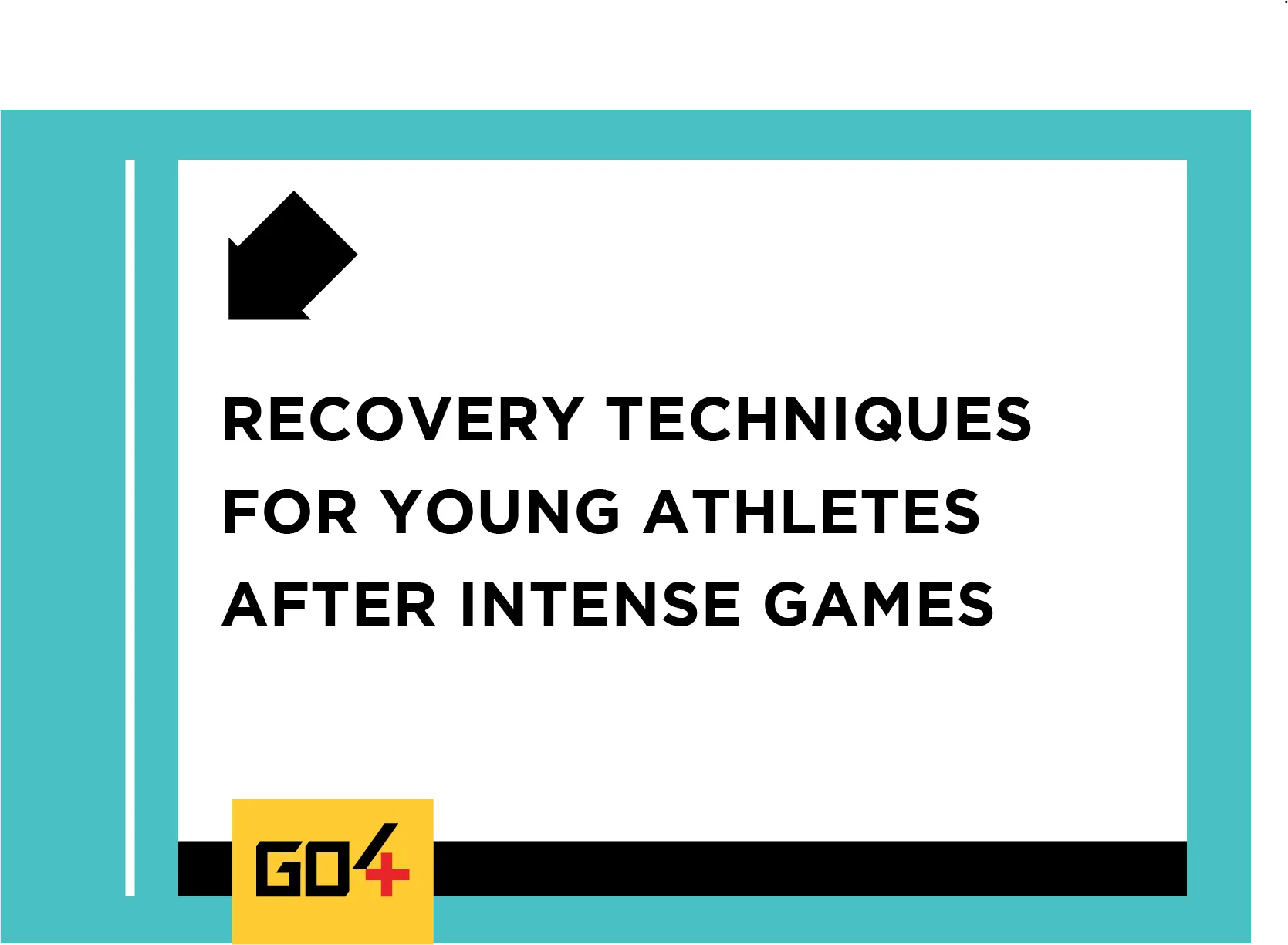Recovery Techniques for Young Athletes After Intense Games

Proper recovery is essential for young athletes to maintain their performance, prevent injuries, and promote overall well-being. Here are some effective recovery techniques for young athletes to help your child bounce back after intense games.
1. Hydrate and Replenish Nutrients
Encourage your child to drink plenty of water immediately after the game to rehydrate. Consuming a balanced snack or meal that includes carbohydrates, protein, and healthy fats within an hour of the game can help replenish energy stores and aid muscle recovery.
The amount of water a child should drink depends on their weight in kilograms:
- Children 11–20 kg: 100 ml/kg for the first 10 kg, plus 50 ml/kg for each additional kilogram
- Children over 20 kg: 1500 ml for the first 20 kg, plus 20 ml/kg for each additional kilogram
2. Stretching and Cool-Down Exercises
Incorporate a cool-down routine right after the game that includes gentle stretching and light aerobic exercises. This helps reduce muscle stiffness, improve flexibility, and promote blood flow to aid in recovery. This routine should last between 5-10 minutes.
3. Rest and Sleep
Adequate rest and sleep are crucial for recovery. Ensure your child gets enough sleep each night to allow their body to repair and rebuild muscle tissue. Encourage them to take rest days to avoid overtraining and reduce the risk of injuries. 8-10 hours per night is a good benchmark for an appropriate amount of sleep.
4. Massage and Foam Rolling
Massage and foam rolling can help relax tight muscles, improve blood circulation, and reduce muscle soreness. Steps to foam rolling include:
- Finding a sore area
- Lowering yourself gently onto the foam roller
- Rolling back and forth at about a rate of 1 inch per second
- Hold for 20-30 seconds in areas that might need more attention
6. Active Recovery
Light activities such as walking, swimming, or yoga can promote active recovery. These activities help maintain blood flow, reduce muscle stiffness, and enhance overall relaxation without putting additional strain on the muscles.
7. Proper Nutrition
Focus on a balanced diet rich in essential nutrients, including vitamins, minerals, and antioxidants. Foods such as fruits, vegetables, lean proteins, whole grains, and healthy fats support muscle repair and overall recovery. A few examples of lean proteins are chicken and fish.
8. Mental Relaxation
Mental relaxation is just as important as physical recovery. Encourage your child to engage in activities that help them unwind and relax, such as reading, listening to music, or spending time with friends and family.
9. Monitor and Adjust Training
Keep track of your child’s training and game schedule to ensure they are not overtraining. Adjust their training intensity and volume based on their recovery needs and overall well-being. Physical signs of overtraining include chronic fatigue, frequent injuries, decreased performance, persistent muscle soreness, increased heart rate.
By implementing these recovery techniques, you can help your young athlete recover effectively after intense games. Proper recovery ensures they remain healthy, perform at their best, and enjoy their sports activities to the fullest.
Does your team need athletic trainers?
Are you an Athletic Trainer?
Join us!
From per diem shifts to full-time opportunities, AT resources, PLI, a free EMR and more, Go4 is the essential AT app. Sign up now!
"*" indicates required fields
Other articles you might like

What is the deal with Standing Orders?
How do I get standing orders as an athletic trainer? Q: What are standing orders? A: Standing orders, aka medical protocols, establish the scope of practice for an athletic trainer. Under the direction of a physician, they are an overview of the specific skills that the AT is legally able…

AT Spotlight: Thomas Obergefell, Athletic Training from the Dugout
Name: Thomas Obergefell, MS, ATC, LAT Nickname: T.J. Alma…

Middle School / High School / College / Any School EMR: The Importance of Documentation
Go4’s in-app Electronic Medical Record We all know the reasons why it’s important to thoroughly document, but incase you forgot, here they are:…